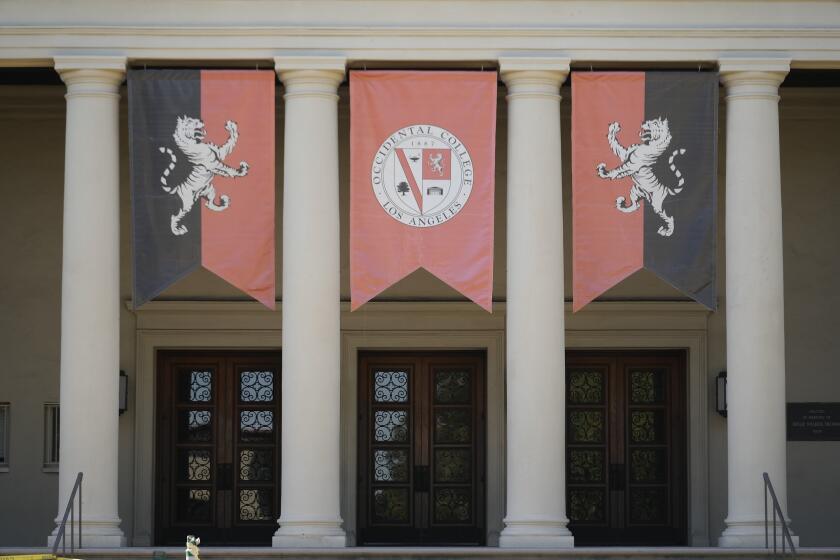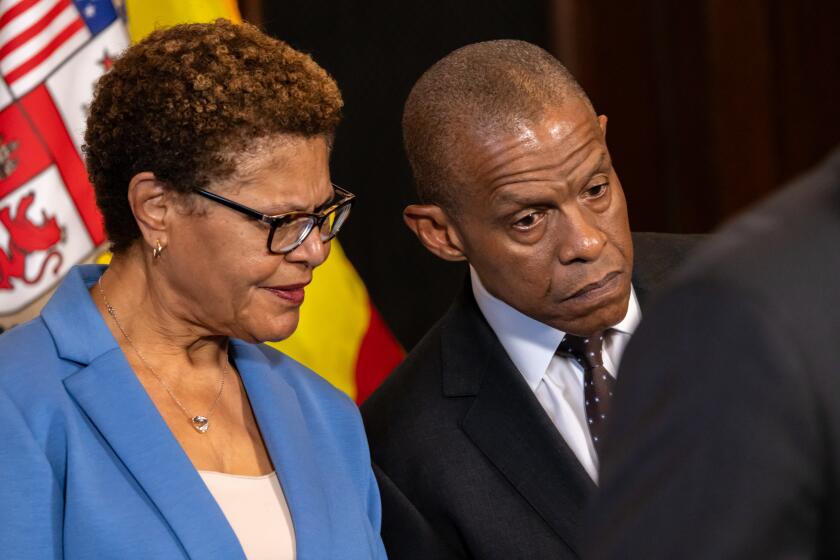Mayor Tells of New Plan for Reviews of Projects
Mayor Tom Bradley unveiled a plan Thursday to alter Los Angeles’ controversial environmental review system that allows developers to hire their own consultants to assess the impacts of their projects.
Homeowners and slow-growth advocates have called for reforms of the existing system. But the mayor’s plan did not satisfy some of them. “This isn’t reform, it’s just change,” said Barbara Fine, vice president of the Federation of Hillside and Canyon Assn., representing 50 homeowner groups.
Bradley’s plan offers two options to the developer. Under the first option, the developer would be offered a guarantee that his environmental impact report would be completed and processed by the city in one year if he allowed the city to pick the consultant. This option would give the city the greatest control over the preparation of the report.
The second option would maintain the status quo. The developer would pick his own consultant and “take his chances” on how quick the city would process the environmental review, said Brad Crowe, the Planning Department official who drafted the proposal. The city also would make available to the developer a list of “approved” consultants from which to choose--but using the list would not be required.
At a news conference, Bradley said his program would help bring a new impartiality to the environmental review process which, he said, is now dominated by the “handpicked consultants” hired to represent the “selfish interests” of their developer clients.
Under the mayor’s plan, which was endorsed by several homeowner representatives and Councilman Marvin Braude, the city will have the “most progressive and objective EIR process in the country,” said Bradley press secretary Bill Chandler.
Fine, the homeowner leader, said the city should not offer the developer options. Rather, the city should simply require that environmental reviews be performed by consultants who are picked, paid for and accountable to the city.
Fine said the plan really shows the city “is going all out to appease developers by guaranteeing a fast-track approval process.”
Bradley and Planning Department Director Kenneth Topping predicted developer resistance to the plan. To accommodate this, the city plans to undertake the reforms gradually and embark on a “sales job” to persuade developers to accept the reforms and break their “longstanding habits,” they said.
In the end, however, the developers should embrace the plan because it will shorten the time it takes City Hall to process their projects, Bradley and Topping said. Bradley said it takes an average of 18 months to get an EIR done and processed at City Hall--a span that he says can be cut to 12 months.
Developers currently select and hire the consultants who perform the environmental impact reports for their projects. These reports, often highly technical, are supposed to identify the impacts and propose ways, where possible, to mitigate the negative effects of a project.
Developers, for example, often are required to reduce traffic congestion by widening streets, installing traffic signals and providing additional parking--all of which can be costly.
More to Read
Start your day right
Sign up for Essential California for news, features and recommendations from the L.A. Times and beyond in your inbox six days a week.
You may occasionally receive promotional content from the Los Angeles Times.






